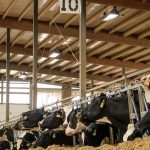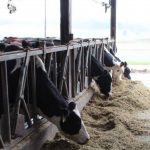
The overexposure of the world’s population to misinformation on food exposes them to making decisions based on non-scientific sources, putting their health at risk, especially in the case of sensitive products intended, for example, for infant feeding and whose nutritional contributions are irreplaceable.
The label of a food or its advertising must guarantee truthful information, not only to avoid putting health at risk, but also to avoid violating the autonomy of individuals who could condition their decisions based on misleading reasons: ambiguity in the names or pictograms, location in commercial spaces, opinions and recommendations from unverifiable but shocking sources, available to everyone.
Clear information, supported by scientific and objective evidence, allows the consumer to make a free and responsible choice.
That someone runs the risk of confusing one food with another is a problem of food safety, public health and individual health. The State and its institutions must protect consumers and guarantee their rights.
The “milk from…” on a vegetable beverage is undoubtedly intended to make the consumer opt for it instead of milk. If they are also on the same shelf, the consumer is being told that they are similar. Does the consumer know what nutritional differences there are between vegetable beverages and milk, and how they are absorbed by the body depending on their origin? No, because they are blatantly lied to. Even the health “professional” lies to them.
The market for plant-based beverages is growing, and it is growing as people replace milk in their diets with these beverages, whether for medical reasons such as intolerances or allergies, or for a lifestyle based on ethical, aspirational principles or personal ideologies.
Plant-based drinks that claim dairy properties are suspensions of plant material dissolved in water, which look similar to cow’s milk. These extracts of legumes, nuts or cereals have the nutritional properties of their vegetable source and those artificially added in their processing.
Inadequate intake of these nutrients can put the health of vulnerable groups such as growing children, post-menopausal women and the elderly at risk, because milk and vegetable drinks are two different things, with different origins, ingredients and nutrients.
It is absolutely necessary that this new range of products that is making its way into people’s food baskets, comes hand in hand with information about the nutritional value of milk and plant-based beverages.
On the other hand, products that imitate, without their nutritional success, real dairy products are considerably more expensive, so that convincing a population that “the good” goes that way, is to force them to be poorer and poorer, in order not to be bad.
Disinformation and unfair competition:
Using the term “milk” on non-dairy products generates confusion among consumers and, devalues cow’s milk that has been consumed for centuries and has a well-established nutritional profile, rich in essential nutrients of high biological value.
By calling beverages “milk” that are not, we allow unfair competition and consumers looking for the specific benefits of cow’s milk are misled.
Impact on farmers:
The dishonest promotion of vegetable beverages, which denigrates legitimate milk, and the appropriation of its denomination attack agriculture and dairy farmers.
The growing consumption of plant-based beverages, replacing authentic milk, puts its demand in crisis, affects rural communities that depend on its production, reducing their income and generating economic difficulties, in a sector that already has more difficult things to deal with. Milk production requires constant changes and is financially complex for producers.
Cultural and traditional value:
The production of cow’s milk and dairy products has a deep-rooted cultural and traditional value in many societies around the world. The promotion of plant-based beverages as an apocryphal “healthy and environmentally friendly” counterpart erodes the practices and knowledge passed down from generation to generation around the production and consumption of dairy products, affecting the identity and cultural heritage of communities.
Dairy consumption is good for you. It is ancestral, it is nutritious, it is healthy, and it has no equal.
Have you had your glass of real milk today?
Valeria Hamann




















